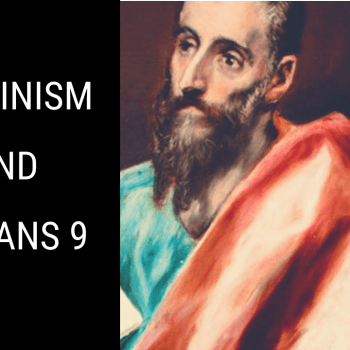Last week James White had a radio debate with Arminian Pentecostal scholar Dr. Michael Brown over the subject of Calvinism. Through out most of the debate, I found myself cheering on Dr. White. However, when Dr. Brown presented a couple of texts, 1 John 2:2 “He is the atoning sacrifice for our sins, and not only for ours but also for the sins of the whole world.” and 2 Peter 2:1 “But there were also false prophets among the people, just as there will be false teachers among you. They will secretly introduce destructive heresies, even denying the sovereign Lord who bought them—bringing swift destruction on themselves.”
Dr. Brown brought up the point that the term world never means “the elect” in the many times John uses the word through out this epistle. While I don’t think Dr. White was saying that world means specifically “the elect” Dr. Brown made a good argument. Through out the epistle, the word “world” means either the sin of the present age, the present evil age itself, or the people belonging to this evil age. Thus, why, in this one place would John mean “all ethnicities” or “many people through out all time?”
When presented with this argument, Dr. White said that the definition of the word “world” was irrelevant for his argument. This is because the term propitiation means the turning away of wrath, thus it must refer only to specific people, or else God has no wrath toward anyone and ultimately everyone will be saved.
I was disappointed that Dr. White did not deal with the term “world.” I do not believe it is irrelevant to the argument, and I would like to hear how he, in the context, would interpret this term as meaning only some people of all ethnicities. In the text, “world” is contrasted with “us.” Thus, the “world” must be different from the “us.” So who is John writing to? One argument says to Jews. Thus, John would be saying that Christ died not only for the sins of Jews, but for the sins of gentiles. However, there is no evidence in the text that John was writing to only Jews. This is why it is considered one of the “catholic epistles.” David Wells argues that “world” means “Christians of all times.” However, I see no evidence that kosmos could have this type of meaning. If this is really a catholic epistle, the “us” must refer to all believers, thus “world” must refer to unbelievers.
As for Dr. White’s argument for the term propitiation; I do not believe that it would necessitate universalism. Can one have Christ as their propitiator and yet be under the wrath of God? I would argue yes, and that Dr. White believes this as well. I would like to ask Dr. White, before the Spirit created saving faith in his heart, was he under the wrath and curse of God? Unless he believed in eternal justification, which he does not, he must admit that he was at one time under God’s wrath. Was God’s wrath against him propitiated? If he is one of the elect, then he must answer in the affirmative. I would ask Dr. White, how can Christ propitiate the wrath of God for you if you were at some point still under the wrath of God? Is this just because you did not have faith? But isn’t unbelief one of the sins that Christ died for?
My point is, even Dr. White must admit that the redemption accomplished by Christ must be applied through faith before it benefits the one for whom it was paid. Thus, in the same way, Christ propitiated the wrath of God for the sins of all men. However, the benefit of that must be received by faith. Thus, if one does not have Spirit created faith, he does not benefit from the work of Christ, though it may have been given for him.
Think about the sacrifices of the old covenant. The sacrifices were given for the nation as a whole. However, only those who drew near would benefit from its blessings. It was objectively given for the entire nation, however, it had to be received subjectively for one to receive the benefits. Now, with the death and resurrection of Christ, the objective work he performed on earth is given for all people of all nations objectively. However, as in the old covenant, one must draw near to God through faith to receive its benefits.











